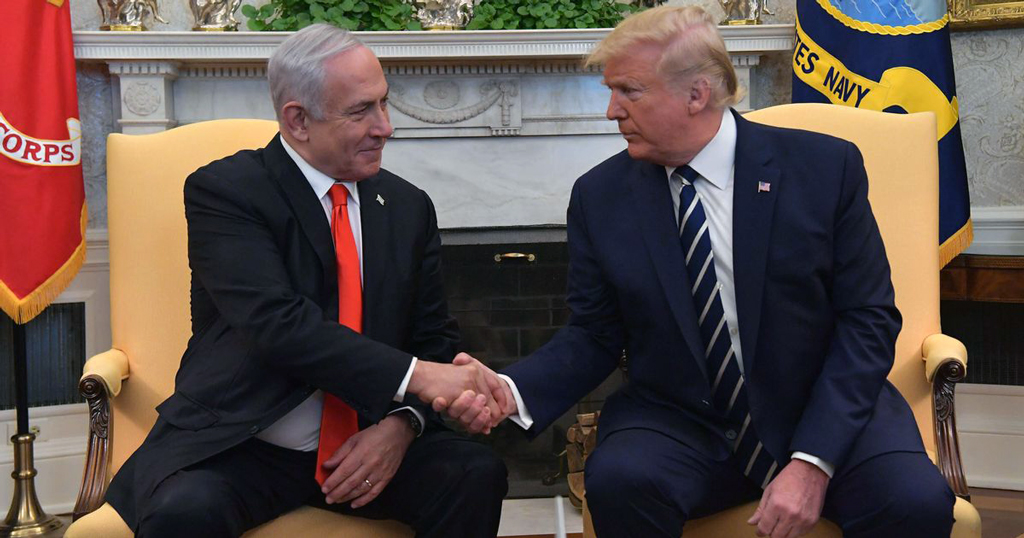After U.S. President Donald Trump announced that he will release his long-awaited Middle East peace plan, known as the "Deal of the Century," Middle Eastern observers started to discuss the proposal. The plan, which reflects the vision of the Trump administration toward the Palestinian-Israeli question, was drafted by a commission established by President Trump. The team was led by Jared Kushner, Trump's son-in-law and his adviser for the Middle East. Trump has declared that he will reveal the plan on Jan. 29 after meeting with Israeli Prime Minister Benjamin Netanyahu and Israeli opposition leader Benny Gantz.
Achieving peace between the Israeli state and the Palestinian people will be tough, as it is expected to be by Trump as well, because the Israeli side does not take any Palestinian demands into consideration. All steps taken so far have been unilateral and against the interests of the Palestinians. The Deal of the Century is no exception; it is also a unilateral intervention to the question. Therefore, it is a dictation to the Palestinian-Israeli problem which ignores the realities on the ground.
Trump, who has postponed the unveiling of the peace plan several times, decided to reveal the plan at a time when American domestic politics are focused on Trump's future and the national media continues to be full of his impeachment trials. Netanyahu also faces serious charges in the Israeli parliament due to corruption indictments. That is, the timing of the declaration has been determined with domestic consumption in mind since both leaders will face elections in 2020 and they want to secure reelection. In other words, it seems that the declaration of the plan intends to divert the attention of both American and Israeli public opinion from Trump and Netanyahu's cases.
The timing of the deal also has to do with the current situation of the Arab world. As a matter of fact, today there is no political Arab world. Almost all heavyweight Arab states are in chaos, politically unstable or vulnerable. The Arab world nowadays is mainly represented by the United Arab Emirates and Saudi Arabia, which are closely associated with the Trump administration and the Israeli state. Therefore, there is no strong Arab nationalist state to defend the rights of Palestinians.
President Trump did not invite the Palestinian side to Washington since he knows that the deal is not in the interests of the Palestinians and they will reject it. The Palestinian actors have already rejected the proposed peace plan because all agree that it will heavily favor Israel. Palestinians have not forgotten the significant pro-Israeli steps President Trump has taken since he took office in January 2017.
President Trump has made several significant decisions, all of which violated international rules and principles. Among others, President Trump has recognized the united Jerusalem as Israel's capital, transferred the U.S. Embassy from Tel Aviv to Jerusalem, abandoned the long-time two-state solution, stopped funding the United Nations Palestinian Refugee Agency (UNRWA), closed down the PLO office in Washington D.C., and announced that the U.S. will not consider the Israeli settlements in the occupied territories as inconsistent with international law. Since he unconditionally supports the Israeli state, no Palestinian has trust in the Trump administration and thus sees Trump as a dishonest broker. Therefore, Palestinian political actors will not accept any initiative started by Trump.
Although some Arab regimes may support the U.S. peace plan, not only Palestinians but also Arab societies will react fiercely to the Deal of the Century. As the U.N. resolutions, international law and international public opinion expect, Palestinians also anticipate Israel will withdraw from the occupied territories – East Jerusalem, the West Bank and Gaza Strip – and accept an independent Palestinian state as part of a two-state solution.
In conclusion, the alleged peace plan deviates from the traditional American policy toward the Palestinian-Israeli problem, which has overseen the peace process between the Israeli state and the Palestinian people and defended a two-state solution. The Trump administration prioritizes the security of the Israeli state alone. In one sense, Trump's policy toward the Palestinian-Israeli problem is "Israel first," similar to its domestic policy of "America first." Trump did not discuss the peace plan with his NATO allies or with other global powers such as Russia and China. Therefore, it will be very difficult to gain support from the international community. It seems that Trump does not care about the possible costs and implications of his peace plan.
[Daily Sabah, 29 January 2020]







